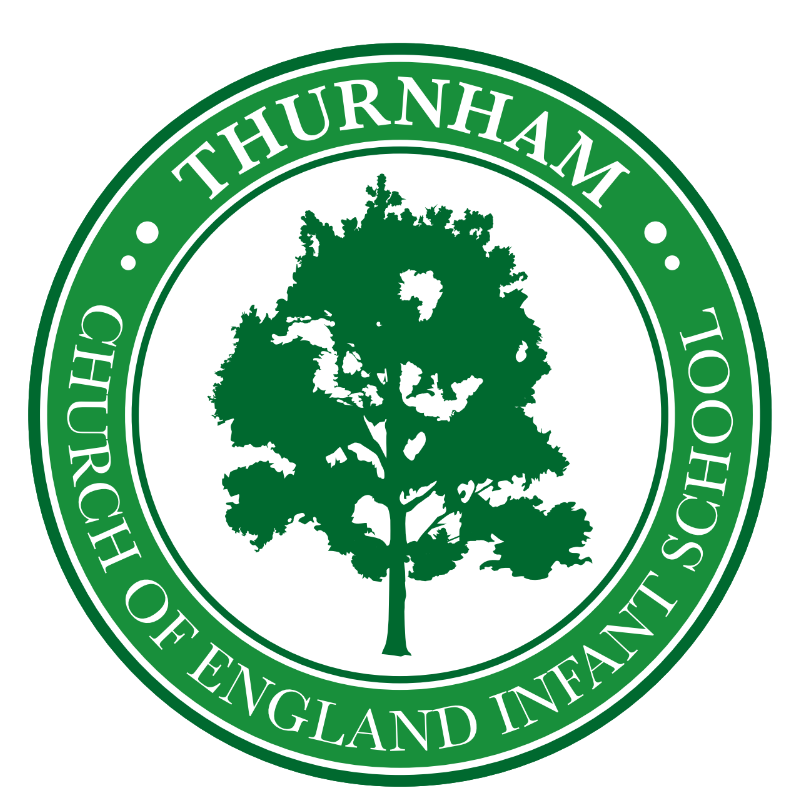Science
Science Curriculum Statement for Thurnham C of E Infant School
Intent
Science at Thurnham CE Infant School aims to give all children a secure understanding of the world around them, whilst acquiring science subject knowledge, encouraging them to think scientifically. Our science curriculum is both knowledge based and provides children with the opportunity to learn and use specific scientific skills for investigation and data collection. These skills are embedded in each topic throughout the year. Children will have the opportunity to revisit particular topics and skills, throughout their time at school, to develop them further. Our curriculum also looks at the implications of science today, in the past and for the future.
At Thurnham CE Infant School we aim for all children to:
- Develop scientific knowledge and conceptual understanding throughout all aspects of science: biology, chemistry and physics.
- Develop an understanding of the nature, processes and methods involved in science by carrying out scientific enquiries that enable them to answer questions about the world around them.
- Be equipped with scientific knowledge and skills required to understand the uses and implications of science. Lessons have a knowledge based focus, with skills taught alongside.
We encourage all children to be inquisitive with their learning at school, as well as at home. Our science curriculum aims to inspire children to show curiosity about the world, promoting respect for the living and non-living. We believe our science curriculum consists of the acquisition of knowledge, skills, concepts and positive attitudes. Our curriculum enables children to develop these areas across each year group, as they travel up the school, often revisiting and building on previous knowledge. Children are encouraged to continue to ask science based questions and be curious about the world around them, developing independence through exploration for possible answers.
Implementation
All teachers at Thurnham CE Infant School demonstrate a positive attitude to science learning, encouraging children to adopt a similar level of positivity. Expectations of achieving high standards of science learning are reinforced in every classroom. This is done by the following:
- Science is planned so that all areas of the curriculum are met by the end of each year.
- We create and follow our long-term, medium term and short-term plans, which provide teachers with National Curriculum lesson objectives, key knowledge and vocabulary, and suggested activities to promote scientific skills. Each term, children are taught key vocabulary. Children are encouraged to refer back to each lesson to support their learning. The curriculum also teaches children about some famous scientists, and their impact on the world.
- Throughout the planning are opportunities for children to ask and answer questions, as well as opportunities to use their scientific skills to research and discover.
- Teachers ensure lessons are engaging and resources are available to aid the understanding of conceptual knowledge and skills.
- Children are assessed regularly to ensure any gaps in learning are addressed.
- Knowledge and working scientifically skills are built upon each year, from learning from previous years. As the children’s knowledge and understanding increases, they are able to independently identify what scientific methods or equipment are required for the task in hand. They will develop their confidence and ability to draw up conclusions based on real evidence that they have acquired.
- Teachers will find opportunities to demonstrate and develop children’s understanding of using scientific equipment, including the use of outdoor learning.
- Our school superpowers: Brain Power, Resilience, Independence and Creativity will be intertwined into each science lesson.
- Children are also offered a range of extra-curricular activities, including school trips, inviting visitors in or having a science-based day to compliment and broaden the curriculum. These will be purposeful and link with the knowledge being taught in class.
- Children will start their science learning journey in EYFS by making observations and studying the environment around them as part of their learning about ‘The World’. In year 1 they will move on to identifying, naming and describing plants, animals and materials, as well as learning about the seasons and weather. Finally, in year 2, the children will develop their knowledge and skills, describing and explaining their knowledge, as well as comparing and observing more closely.
Impact
At Thurnham CE Infant School our science curriculum is of high quality, well planned out and clearly demonstrates progression. We aim for all children to be keeping up with the curriculum, to make good or better progress. We measure the impact of our curriculum through the following methods:
- Book looks
- Pupil voice surveys
- Verbal or written feedback each lesson directly to the pupils
- Learning walks
- Lesson observations
- End of term teacher assessments
We believe the science curriculum at Thurnham CE Infant School results in engaging, high-quality learning that provides children with the foundations and knowledge for understanding the world around them. We encourage children to learn through first-hand experiences, making lessons practical where possible, as well as promoting learning outside the classroom. Exposing children to a range of scientific knowledge skills and famous scientists, we hope that all children feel they are scientists and capable of achieving high standards of work. Children at Thurnham CE Infant School are motivated learners who thoroughly enjoy science lessons, and are inspired by learning.
